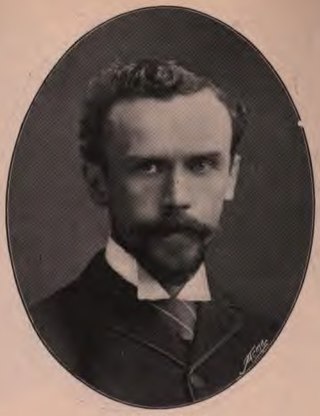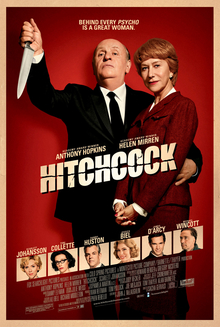Related Research Articles

David Lloyd George, 1st Earl Lloyd-George of Dwyfor, was Prime Minister of the United Kingdom from 1916 to 1922. A Liberal Party politician from Wales, he was known for leading the United Kingdom during the First World War, for social-reform policies, for his role in the Paris Peace Conference, and for negotiating the establishment of the Irish Free State. He was the last Liberal Party prime minister; the party fell into third-party status shortly after the end of his premiership.

Alma Lucy Reville, Lady Hitchcock was an English screenwriter and film editor. She was the wife of film director Alfred Hitchcock. She collaborated on scripts for her husband's films, including Shadow of a Doubt, Suspicion, and The Lady Vanishes, as well as scripts for other directors, including Henrik Galeen, Maurice Elvey, and Berthold Viertel.

David Alfred Thomas, 1st Viscount Rhondda, PC, was a Welsh industrialist and Liberal politician. He was UK Member of Parliament (MP) for Merthyr Tydfil from 1888 until the January 1910 general election, then MP for Cardiff until the December 1910 general election, when he left politics to concentrate on his business interests. He was made a member of the Privy Council in 1916. He later held office, notably as "Food Controller" in Lloyd George's wartime coalition government.

Sir John Herbert Lewis was a Welsh Liberal Party politician.

Ernest Frederic Graham Thesiger, CBE was an English stage and film actor. He is noted for his performance as Doctor Septimus Pretorius in James Whale's film Bride of Frankenstein (1935).

The cinema of Wales comprises the art of film and creative movies made in Wales or by Welsh filmmakers either locally or abroad. Welsh cinema began in the late-19th century, led by Welsh-based director William Haggar. Wales continued to produce film of varying quality throughout the 20th century, in both the Welsh and English languages, though indigenous production was curtailed through a lack of infrastructure and finance, which prevented the growth of the industry nationally. Despite this, Wales has been represented in all fields of the film making process, producing actors and directors of note.
Maurice Elvey was one of the most prolific film directors in British history. He directed nearly 200 films between 1913 and 1957. During the silent film era he directed as many as twenty films per year. He also produced more than fifty films – his own as well as films directed by others.
Alfred Ernest Newbould was a British cinematographer and Liberal politician.

Beware of Pity is a 1946 British romantic drama film directed by Maurice Elvey and starring Lilli Palmer, Albert Lieven and Cedric Hardwicke. It is based on the 1939 novel of the same name by Stefan Zweig. A paraplegic young baroness mistakes compassion for love. The film's costumes were designed by Cecil Beaton. It was made by Two Cities Films at Islington Studios. The film was not a great popular success outside the Soviet Union.
Nelson, also cited as Nelson: The Story of England's Immortal Naval Hero, is a 1918 British historical film directed by Maurice Elvey and starring Donald Calthrop, Malvina Longfellow and Ivy Close. Its screenplay is based on the biography of Admiral Horatio Nelson by Robert Southey.
Quinneys is a 1927 British romance film directed by Maurice Elvey and starring John Longden, Alma Taylor and Henry Vibart. It is an adaptation of the play Quinneys by Horace Annesley Vachell. David Lean worked on the film as a camera assistant. It was made by Gaumont British at their Lime Grove Studios.

Evan Eynon Evans billed as Eynon Evans and also known as E. Eynon Rees, was a Welsh writer and film actor of the 1950s, mainly known for his radio and television work. During the 1940s he appeared on the BBC radio variety show Welsh Rarebit as the comedic character Tommy Troubles, reaching an audience of 12 million.
Norman Page was a British actor. He is best known for his portrayal of David Lloyd George, Prime Minister during the First World War, in the 1918 film The Life Story of David Lloyd George, which is believed to be the first ever feature length political biopic.

Jarred Christmas is a comedian from New Zealand who now lives and works in the United Kingdom. He won the Chortle Comedy Award for Best Compère in 2010, and the Fred Award in 2013.
The Ideal Film Company was a British film production and distribution company that operated between 1911 and 1934.

Hitchcock is a 2012 American biographical romantic drama film directed by Sacha Gervasi and based on Stephen Rebello's 1990 non-fiction book Alfred Hitchcock and the Making of Psycho. Hitchcock tells the story of the relationship between Alfred Hitchcock and his wife, Alma Reville, during the filming of Psycho in 1959. Hitchcock premiered at the AFI Fest on November 1, 2012 and was released in the United States on November 23 by Fox Searchlight Pictures. It grossed $27 million against a $15 million budget.
John Hefin MBE was a Welsh television producer and director who served as head of drama at BBC Wales. He began working for the BBC in 1960, and his career at the corporation included devising the long-running Welsh soap opera Pobol y Cwm, co-writing and directing the comedy film Grand Slam, and producing the 1981 biopic The Life and Times of David Lloyd George. He was later involved with the work of Film Cymru, the Film Commission Wales, and the media journal Cyfrwng. He also worked in the Department of Theatre, Film and Television Studies at Aberystwyth University. He died from cancer in November 2012.

Women's suffrage in Wales has historically been marginalised due to the prominence of societies and political groups in England which led the reform for women throughout the United Kingdom. Due to differing social structures and a heavily industrialised working-class society, the growth of a national movement in Wales grew but then stuttered in the late nineteenth century in comparison with that of England. Nevertheless, distinct Welsh groups and individuals rose to prominence and were vocal in the rise of suffrage in Wales and the rest of Great Britain.
Unlocking Film Heritage (UFH) was one of the biggest film digitisation projects ever undertaken and it encompassed the BFI National Archive together with national and regional audiovisual archival institutions in United Kingdom. Between 2013–2017 around 10,000 titles, capturing 120 years of Great Britain on film, were digitised and made free-to-access in a variety of ways. Many archival clips can be watched for free online via BFI Player.
Archie is a 2023 British television drama series about the life of Cary Grant starring Jason Isaacs in the lead role with Kara Tointon, Harriet Walter, Jason Watkins, Calam Lynch and Laura Aikman.
References
- 1 2 3 Sarah Barrow, John White: Fifty Key British Films, Routledge 2012, page 8 Linked 2015-03-18
- ↑ Rachael Low: The History of British Film (Volume 3): The History of the British Film 1914 - 1918, Routledge 2013, page 93 Linked 2015-03-18
- 1 2 William D. Rubinstein: The Palgrave Dictionary of Anglo-Jewish History, Palgrave Macmillan 2011, page 831 Linked 2015-03-18
- 1 2 3 "2010 UK Memory of the World Register Archived 3 August 2010 at the Wayback Machine ", United Kingdom National Commission for UNESCO, 2010. Accessed 4 June 2011.
- ↑ David Berry, Simon Horrocks: David Lloyd George: The Movie Mystery, University of Wales Press, 1998 Linked 2015-03-18
- ↑ National Library of Wales press release, 6 March 2009
- ↑ The Life Story of David Lloyd George DVD, National Library of Wales. Accessed 16 March 2018.
